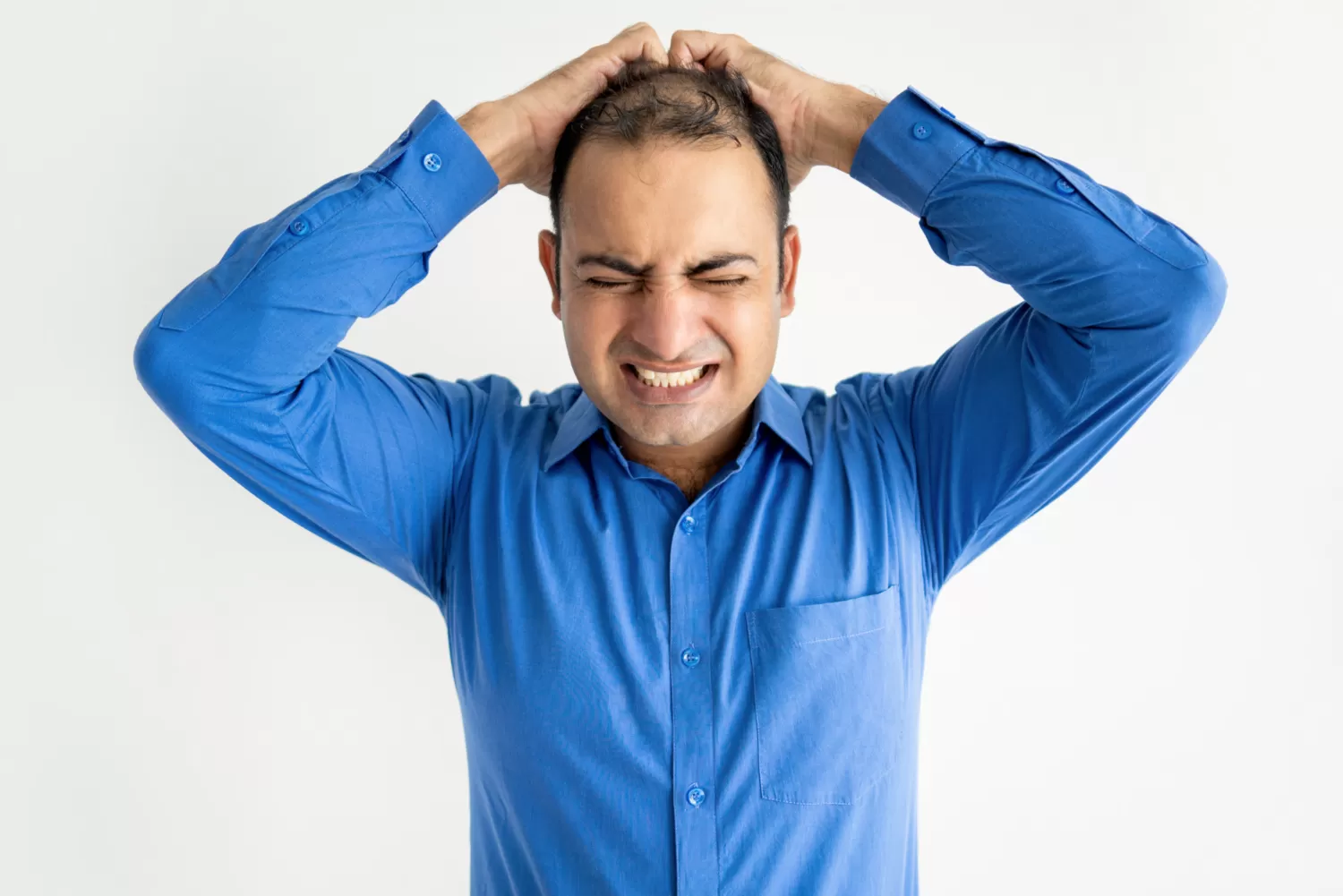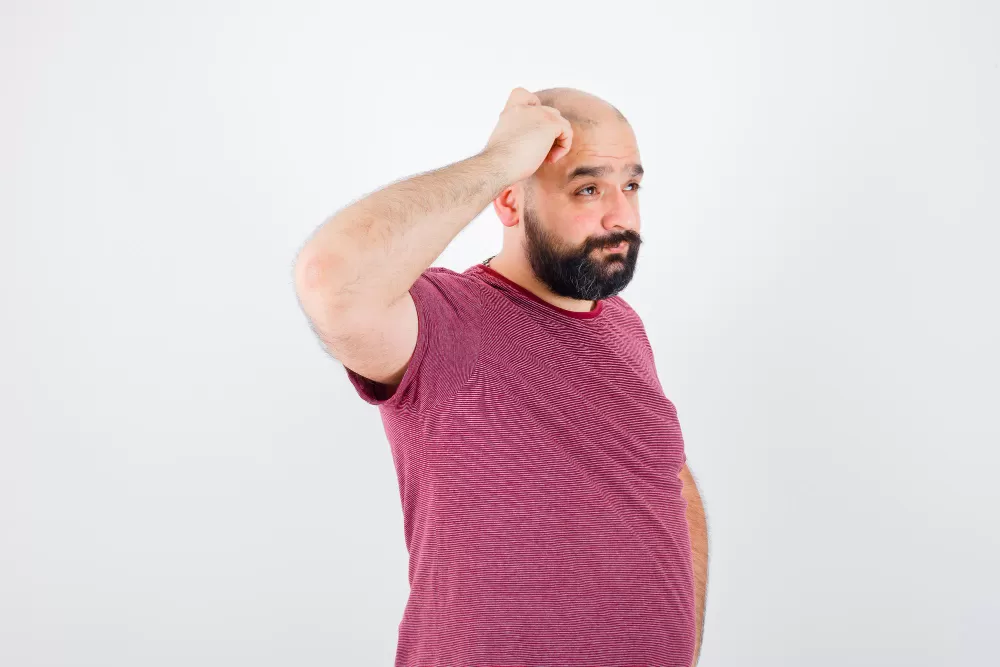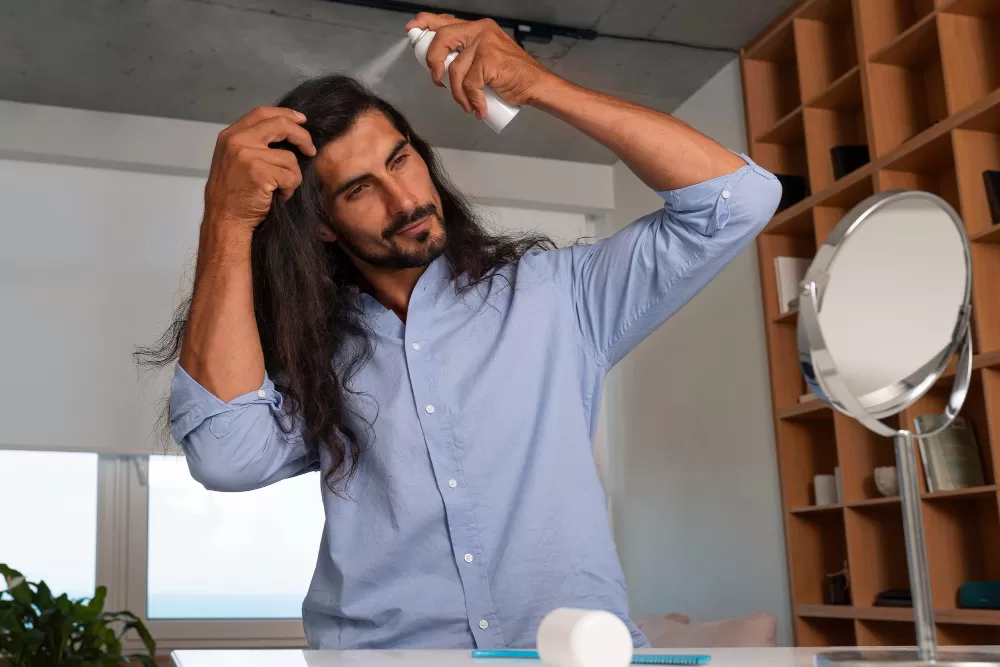A hair transplant is not only a physical procedure but also an emotional journey. Even if the operation is technically successful, stress levels during recovery can significantly affect how well and how quickly your new hair grows. For this reason, maintaining psychological balance after a hair transplant is just as important as following medical aftercare instructions.
Can Stress Cause Hair Loss?
Yes — scientific research confirms that chronic stress is one of the leading factors contributing to hair loss. Stress can trigger several types of hair loss, such as telogen effluvium, alopecia areata, and trichotillomania.
When under stress, the body releases higher levels of cortisol, the main stress hormone. Elevated cortisol reduces blood flow and nutrient delivery to the hair follicles, causing them to weaken, shrink, or even stop producing new hair strands.
How Does Stress Affect Hair Growth After a Transplant?
The post-transplant period can be emotionally challenging. Many patients feel anxious while waiting for visible results, which may increase stress levels. Unfortunately, stress can interfere with the healing and growth phases of transplanted hair. Here’s how:
1. Delayed Hair Growth
Normally, transplanted hairs shed within the first 2–3 months before new growth begins. High stress can prolong the resting phase, delaying new hair emergence.
2. Weak or Thin Hair Strands
Stress disrupts nutrient absorption and blood circulation in the scalp, which can result in weaker, thinner, and more fragile hair strands.
3. Triggering New Hair Loss
Even natural, non-transplanted hairs can start shedding due to stress, reducing overall hair density after the operation.
4. Slower Healing Process
Since stress weakens the immune system and slows cell regeneration, it can delay scab healing and extend the overall recovery period.
How to Reduce Stress After a Hair Transplant
Managing stress effectively after your procedure supports both mental well-being and hair follicle health. Here are some proven ways to help:
1. Be Patient
Hair transplant results take time. The first few months often include shedding and slow regrowth. Full results typically appear within 6–12 months, so patience is key.
2. Get Enough Sleep
Quality sleep helps regulate hormone levels and promotes cellular recovery. Aim for 7–8 hours of rest per night to naturally reduce stress and support hair growth.
3. Eat a Balanced Diet
During stressful periods, your body consumes more nutrients. Include foods rich in B vitamins, zinc, iron, and protein to strengthen both your body and hair follicles.
4. Exercise and Practice Relaxation Techniques
Physical activity lowers cortisol and increases endorphin levels — the body’s “happiness hormones.” Light exercises like walking, yoga, or breathing exercises can be highly beneficial.
5. Seek Social or Professional Support
Talking with friends, family, or a therapist can relieve emotional tension and help you maintain a positive mindset throughout your recovery.
The Psychological Side of Hair Transplant Success
A hair transplant is not just about medical precision; it’s about emotional readiness too. Maintaining a positive mindset encourages hormonal stability and supports healthy hair growth.
Studies show that patients with an optimistic attitude heal faster and report higher satisfaction with their results.
Therefore, your emotional state plays a crucial role in achieving the best possible outcome.
Conclusion: Managing Stress Boosts Hair Growth
Stress is one of the most underestimated factors that can slow or disrupt hair growth after a transplant. Along with proper medical care, mental calmness and patience are essential for a successful recovery.
Remember: A calm mind nurtures strong hair.
Trust the process, stay positive, and you’ll maximize the results of your hair transplant.





No comments yet. Be the first to comment!